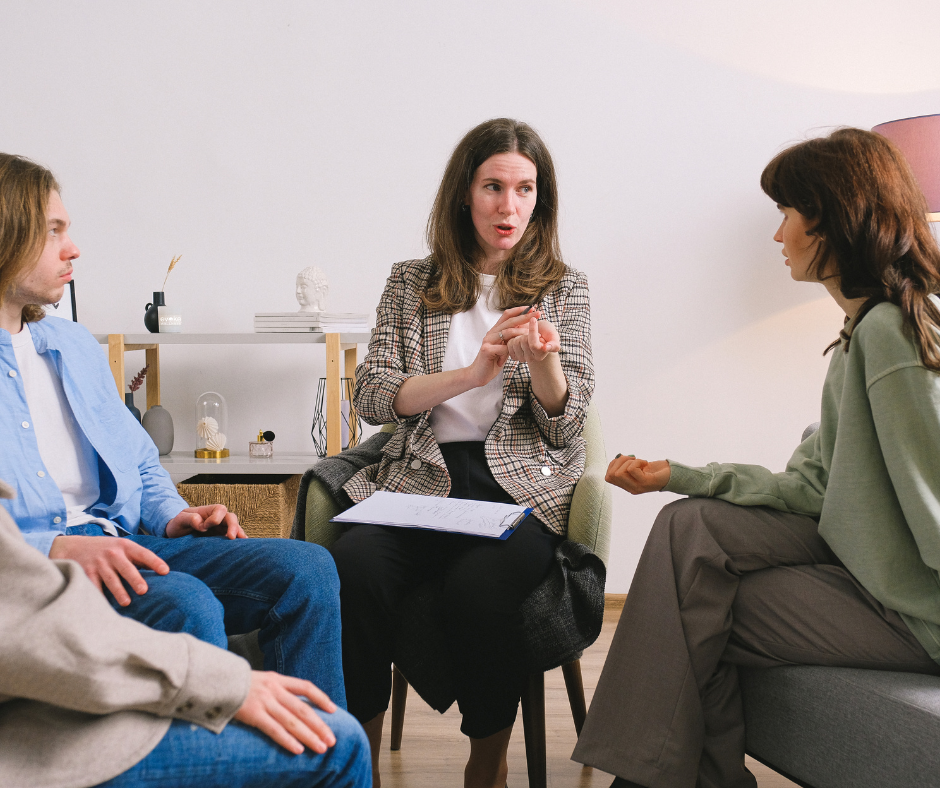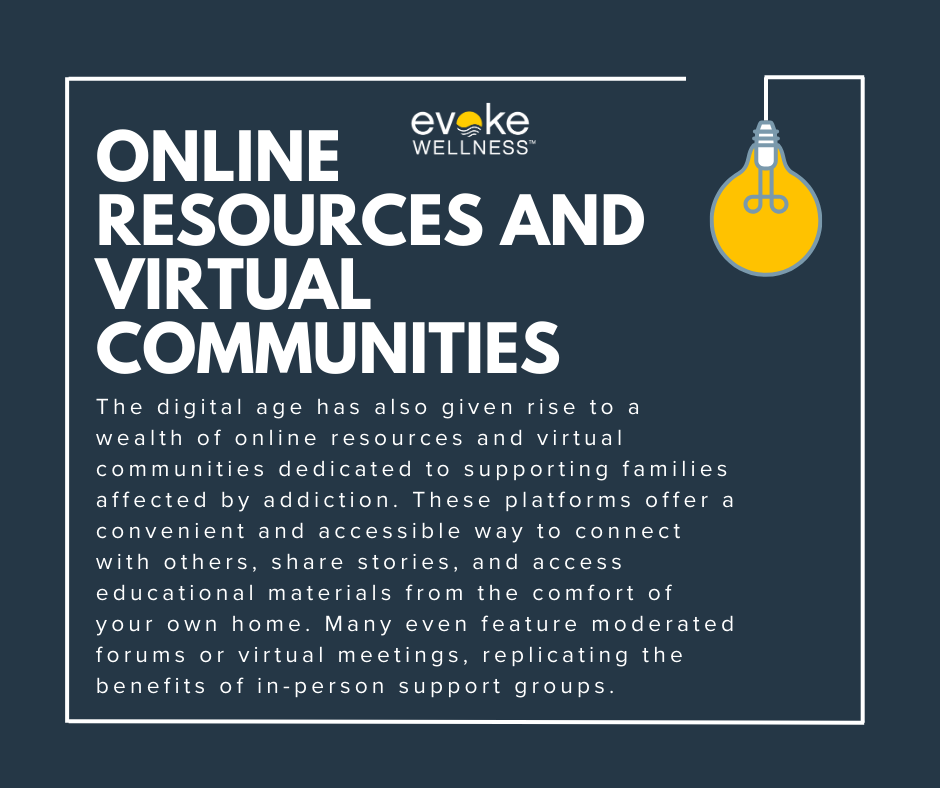You’re not alone in your struggle with addiction and mental health challenges. According to recent studies, over 20 million Americans battle substance use disorders, while 1 in 5 adults experience mental illness each year. At Evoke Wellness at Waltham, we understand the complex interplay between addiction and mental health. Our comprehensive approach integrates substance abuse treatment, mental health programs, and innovative therapy options to address your unique needs. By combining evidence-based practices with compassionate care, we guide you on a transformative journey from crisis to confidence. Discover how our tailored treatment plans can help you reclaim control and build a foundation for lasting recovery.
Together, let’s embrace the journey to recovery and the promise of a new beginning. Call us at (833) 287-7223 today or reach out online.
Understanding the Pathway of Addiction: The 4 Steps
The Descent into Addiction
Addiction is a complex and multifaceted condition that often develops in distinct stages. This gradual descent can seem innocuous at first, but it can rapidly spiral into a devastating reality. According to the National Institute on Drug Abuse, addiction affects millions of individuals and their loved ones each year, leaving a trail of shattered lives and broken relationships in its wake.
Stage 1: Initial Use
The journey often begins with initial experimentation, driven by curiosity, peer influence, or a desire to escape reality. This casual use may seem harmless at first, but it can quickly escalate as the brain’s reward pathways are activated, setting the stage for future abuse.
Stage 2: Abuse
As substance use becomes more frequent, tolerance levels increase, and the desire to cope with underlying issues intensifies. This stage is marked by a growing preoccupation with obtaining and using the substance, often at the expense of other responsibilities and relationships.
Stage 3: Risky Use
At this point, substance use has disrupted daily life, leading to potential legal, financial, or social consequences. Despite these risks, individuals in this stage often continue to use, driven by a powerful compulsion that overrides rational decision-making.
Stage 4: Dependence
The final stage is characterized by a strong physical and psychological dependence on the substance. Withdrawal symptoms emerge when use is reduced or stopped, further fueling the cycle of addiction. At this point, the individual’s life revolves around obtaining and using the substance, often at great personal and interpersonal cost.
Breaking the Cycle
While the pathway of addiction can seem daunting, it is crucial to recognize the signs and seek professional help. Early intervention and a comprehensive approach to treatment, which may include inpatient or outpatient programs, medication-assisted therapies, and ongoing support, can significantly improve the chances of successful recovery. By understanding the stages of addiction, individuals and their loved ones can take the first steps toward reclaiming their lives and embarking on a journey of healing and hope.
The Journey of Recovery: Navigating Mental Health Treatment
Addiction and mental health disorders often go hand-in-hand, making it crucial to address both simultaneously for a successful recovery journey. According to Evoke Waltham’s blog, an estimated 50% of individuals with severe mental illness in Massachusetts also struggle with substance abuse. Comprehensive dual diagnosis treatment centers offer a continuum of care to tackle this complex interplay.
Integrated Approach
Effective mental health treatment programs utilize an integrated approach, combining evidence-based therapies like cognitive-behavioral therapy (CBT), dialectical behavior therapy (DBT), and trauma-informed care. These therapies address the root causes of addiction and mental health issues, helping individuals develop healthy coping mechanisms, regulate emotions, and manage stress.
Evoke Waltham incorporates holistic modalities like mindfulness, meditation, and experiential therapies to support overall well-being. Personalized treatment plans may include medication-assisted treatment, counseling, support groups, and family integration programs, ensuring a comprehensive approach tailored to each individual’s needs.
The Treatment Journey
The mental health treatment journey typically begins with a comprehensive assessment to identify the specific challenges and develop a personalized treatment plan. Evoke Wellness center offers a range of programs, including Day Treatment, Night Treatment (Night Treatment), Dual Diagnosis Treatment, and Aftercare Planning.
Throughout the process, individuals engage in individual and group therapy sessions, exploring the underlying factors contributing to their struggles and learning practical strategies for managing symptoms and preventing relapse. Family involvement is encouraged, fostering a supportive environment and addressing relationship dynamics that may impact recovery.
Lasting Recovery
Ongoing support and aftercare planning are crucial for maintaining progress and preventing setbacks. According to Evoke Waltham’s blog, developing essential recovery skills like self-care, building healthy relationships, and finding purpose can significantly enhance long-term sobriety and mental health stability.
Support groups, alumni programs, and access to additional resources help individuals navigate challenges and celebrate milestones, reinforcing the commitment to a life of recovery.
By addressing mental health challenges alongside addiction recovery, individuals can embark on a transformative journey towards lasting wellness, empowered with the tools and support to reclaim their lives.
Alternatives to Al-Anon: Finding the Right Support System
While Al-Anon meetings provide an invaluable source of support for many families impacted by addiction, they may not be the right fit for everyone. It’s crucial to explore alternative options to ensure you find the most suitable system for your unique circumstances and needs.
Personalized Therapy Programs
For those seeking a more tailored approach, individual or family therapy programs can offer a safe and confidential space to work through the complex emotions and challenges that often arise when a loved one is battling addiction. These programs often incorporate evidence-based techniques like cognitive-behavioral therapy (CBT) and dialectical behavior therapy (DBT) to help you develop coping strategies, improve communication, and foster healthier relationships.
Community-Based Support Groups
In addition to traditional 12-step programs, many communities offer specialized support groups catering to specific demographics or circumstances. These groups can provide a sense of understanding and belonging among individuals facing similar challenges, allowing for open discussions and shared experiences.
Finding the Right Fit
Ultimately, the key is to explore various options and find the support system that resonates most with your needs and preferences. Don’t be afraid to try different approaches until you find the right fit. Remember, seeking support is an essential part of the healing process, both for you and your loved one on the journey to recovery.
Therapy for Addiction: Identifying the Most Effective Approaches
Effective addiction treatment requires a comprehensive, personalized approach that addresses the complex physical, psychological, and social aspects of substance abuse. Therapy plays a crucial role in this holistic approach, offering evidence-based strategies to help individuals break free from the cycle of addiction and achieve lasting recovery.
Cognitive-Behavioral Therapy (CBT)
One of the most widely used and extensively researched therapies for addiction is Cognitive-Behavioral Therapy (CBT). This approach focuses on identifying and modifying the negative thought patterns and behaviors that contribute to substance abuse. Through CBT, individuals learn to recognize their personal triggers, develop healthy coping mechanisms, and cultivate life skills to replace addictive behaviors.
Family Therapy
Addiction often has a profound impact on family dynamics and relationships. Family therapy provides a supportive environment for individuals and their loved ones to address the emotional, behavioral, and systemic issues that may have contributed to or been affected by substance abuse. By involving family members in the treatment process, this approach can foster understanding, strengthen communication, and promote a supportive recovery environment.
Medication-Assisted Treatment (MAT)
In some cases, medication-assisted treatment (MAT) can be an effective component of an overall addiction treatment plan. FDA-approved medications, such as buprenorphine and naltrexone, are used in combination with counseling and behavioral therapies to alleviate cravings and withdrawal symptoms, increasing the chances of successful recovery.
Holistic Therapies
Many addiction treatment programs incorporate holistic therapies as complementary approaches to traditional counseling and medication management. These may include mindfulness practices, yoga, art therapy, and nutritional counseling, among others. By addressing the mind, body, and spirit, holistic therapies can promote overall well-being and provide individuals with healthy coping mechanisms to manage stress and emotions during recovery.
One-on-One Counseling
While group therapy can be beneficial, individual counseling offers a personalized and targeted approach to addiction treatment. In a safe and confidential setting, individuals can explore the underlying issues contributing to their substance abuse, develop personalized coping strategies, and receive emotional support from a trained therapist. This focused attention can be particularly effective in addressing unique challenges and tailoring treatment to individual needs and goals.
By combining these evidence-based therapies within a comprehensive treatment program, individuals struggling with addiction can receive the support and tools necessary to overcome their challenges and embark on a journey toward lasting recovery. It is essential to seek a reputable addiction treatment center that offers a range of proven therapies and takes a personalized approach to ensure the most effective treatment plan for each individual’s unique circumstances.
Conclusion
As you embark on your journey from crisis to confidence, remember that recovery is possible. With comprehensive substance abuse and mental health treatment programs, you can overcome addiction and mental health challenges. Recent studies show that integrated treatment addressing both issues simultaneously leads to better outcomes, with up to 60% of patients maintaining sobriety after one year. By engaging in evidence-based therapy programs and leveraging the support of experienced professionals, you can develop the tools and resilience needed for lasting recovery. Your path forward may not always be easy, but with dedication and the right resources, you can transform your life and reclaim your sense of purpose and well-being. The journey begins with a single step – reach out for help today.
Begin Your Journey with Evoke Wellness at Waltham
If you or a loved one is considering outpatient treatment, Evoke Wellness at Waltham invites you to contact us. Our compassionate team is ready to answer your questions, discuss your needs, and help you take the first steps toward recovery. At Evoke Wellness, you will find more than just a treatment program – you’ll discover a community dedicated to your wellness and success. Together, let’s embrace the journey to recovery and the promise of a new beginning. Call us at (833) 287-7223 today or reach out online.



